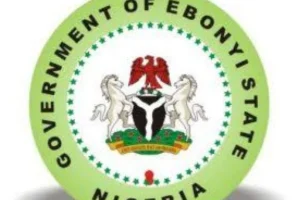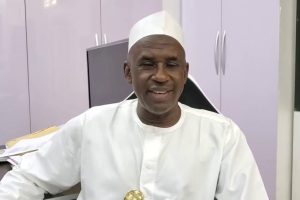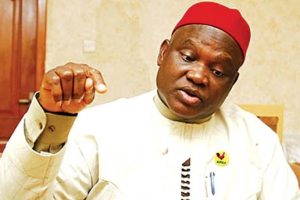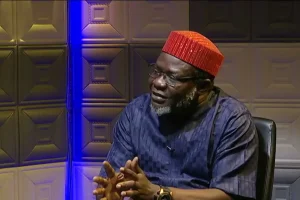
The Federal Competition and Consumer Protection Commission (FCCPC) has clarified that neither Air Peace nor its Chairman, Allen Onyema, is under investigation. Instead, the Commission has invited the airline for an inquiry to better understand its pricing methodology and address consumer complaints.
The FCCPC’s Director of Surveillance and Investigation, Boladale Adeyinka, made this known during a meeting in Abuja, where Onyema and members of his team responded to the Commission’s invitation. Adeyinka emphasized that the process is aimed at fostering transparency and improving consumer satisfaction, not punitive action against Air Peace.
She said, “Thank you so much for honoring our invitation in person. We have gained more insight into your operations. Just to reiterate, this is not an investigation. It is an inquiry to understand and address consumer complaints.”
Adeyinka further explained that the FCCPC is committed to ensuring stability and sustainability in business operations, which aligns with its mandate to balance the interests of businesses, operators, and consumers. She added, “We will review the situation and intervene where we can—not just for Air Peace customers, but for all air passengers and consumers of aviation services.”
The FCCPC director also commended Onyema for his contributions to the country and his philanthropic initiatives. She encouraged him to remain steadfast in his service to humanity despite challenges.
Onyema Defends Fare Pricing in Aviation
In response, Onyema shed light on the challenges facing Nigeria’s aviation sector, particularly the issue of fare pricing. He described the cost of operating airlines in the country as unsustainable under current pricing structures, which he attributed to the low purchasing power of many Nigerians.
Onyema highlighted that the aviation industry globally prices fares at $250 to $300 per hour, and in some cases as high as $540. However, he noted that Air Peace has been unable to match these global standards due to local economic realities.
“The cost of putting an aircraft in the air is not reflected in our fare regime. Airlines frequently fail in Nigeria because the pricing is not sustainable. The choice before Nigerians is clear: either we adopt proper pricing aligned with global standards for safe and sustainable operations or risk watching the airlines collapse,” he said.
Onyema stressed that Air Peace prioritizes safety above all else, describing it as a “pre-condition rather than just a priority.” He pointed out that operational costs in Nigeria include numerous charges, which, if fully factored into ticket prices, would render air travel unaffordable for most Nigerians.
He further noted that his continued commitment to the aviation business stems from a mix of patriotism and the addictive nature of the industry, stating, “If Air Peace were to fully reflect its operational costs in ticket pricing, flying would become inaccessible to the majority of Nigerians.”
The FCCPC inquiry highlights the broader challenges of balancing consumer affordability with operational sustainability in Nigeria’s aviation industry, which is plagued by high costs and fluctuating economic conditions.





